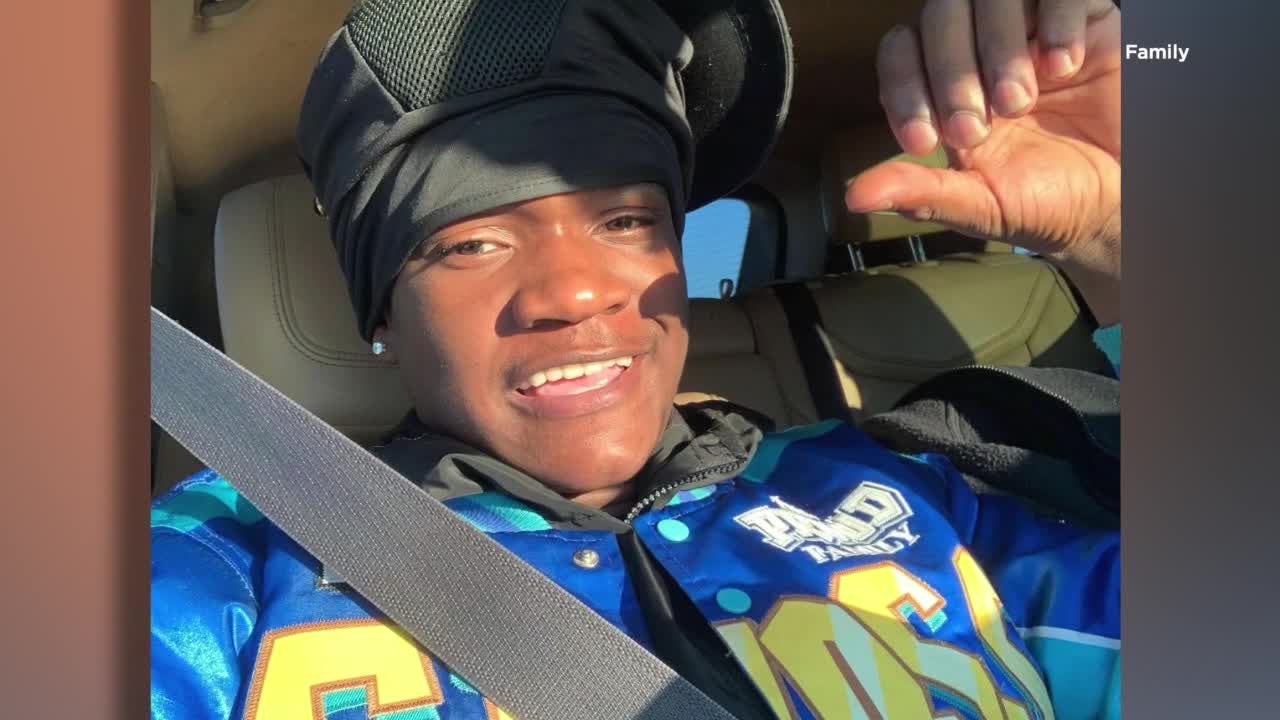Health
Ivanka Trump shares 17 life lessons she’s learned over the years in honor of her birthday

Ivanka Trump, the second child of President-Elect Donald Trump, shared life lessons she’s learned over the years to commemorate her recent birthday.
On October 30, Ivanka Trump turned 43 years old. She took to X a few days later to share tips and insights she’s learned and come to cherish throughout the years.
The first lesson she shared was simple: “Family and friends are everything.”
IVANKA TRUMP SHARES THE FITNESS ROUTINE THAT HAS ‘TRANSFORMED’ HER BODY: ‘SAFE AND STEADY’
She went on to encourage others to nourish and nurture their relationships with the people they care about.
She wrote, “Check in on them, and let people know you care, even across distances.”
For her 43rd birthday this year, Ivanka Trump shared life lessons she’s learned over the years. (ALEX EDELMAN/AFP via Getty Images)
The second lesson was to simply forgive people.
She said doing so “frees you more than anyone else.”
FLORIDA RABBI REVEALS THE 25 THINGS HE’S LEARNED IN LIFE: ‘HONOR YOUR OWN VALUES’
She went on to remind others that “everyone was sent to teach you something” — and encouraged people to avoid gossip while choosing their words wisely.
“Everyone was sent to teach you something.”
“Trust yourself. Identify your core values and live in alignment with them; this may mean setting firm boundaries for yourself and with others,” she wrote.

Usha Vance, Vice President-Elect Sen. J.D. Vance (R-OH), Ivanka Trump and Jared Kushner look on as President-Elect Donald Trump speaks during an election night event at the Palm Beach Convention Center on Nov. 6, 2024 in West Palm Beach, Florida. (Chip Somodevilla/Getty Images)
On a health and wellness note, Trump emphasized the importance of nourishing your body by “eating whole, locally grown, nutritious foods” that can “fuel your energy and spirit.”
She recommended getting “sunshine daily,” saying that “it makes the rest of your day — and night — better.”
10 TIPS TO LIVE TO BE 100: ‘FAR MORE THAN WISHFUL THINKING,’ SAY LONGEVITY EXPERTS
She also shared the tip of bringing awareness “to your hidden patterns, or they’ll quietly script your life story as if it were destiny.”

Trump mentioned forgiving people, maintaining a healthy lifestyle and getting “sunshine daily.” (James Devaney/GC Images)
Trump also said one of her life lessons is to “move your body daily” — whether that’s through lifting weights, playing sports or embracing a sense of play.
OHIO FAMILY LEADER SHARES 11 LIFE LESSONS SHE WANTS HER ‘BELOVED 11 GRANDCHILDREN’ TO KNOW
“Strive for three daily wins: a physical win, a mental win and a spiritual win,” she wrote.
Trump also said it’s important to “guard your peace” while cultivating self-mastery by “focusing inward.”

Trump said, “Strive for three daily wins: a physical win, a mental win and a spiritual win.” (MEGA/GC Images)
Another life lesson she shared was: “Be open to the truth, wherever it leads. Listen, reflect, challenge and grow. Cultivate creativity and expansion in life and embrace new ideas, connections and art.”
She added, “Get curious. About your partner, your kids, your friends and the world around you.”
CLICK HERE TO SIGN UP FOR OUR HEALTH NEWSLETTER
Quoting Dolly Parton, Trump said it’s important to “approach people and life with love and positivity.”

Standing beside Vice President-Elect Sen. J.D. Vance (R-OH), Ivanka Trump and Jared Kushner applaud as President-Elect Donald Trump speaks during an election night event at the Palm Beach Convention Center on Nov. 6, 2024, in West Palm Beach, Florida. (Chip Somodevilla/Getty Images)
Additionally, she stressed the importance of spending time on what truly matters, saying, “Every choice is a trade of your time and energy.”
Trump also said, “What you judge, you cannot understand. Instead, observe, study and learn.”
For more Health articles, visit www.foxnews.com/health
To conclude her life lessons, she also said, “Here’s to another year of growth, love, and meaningful moments!”

Health
The year in cancer: Advances made in 2024, predictions for 2025
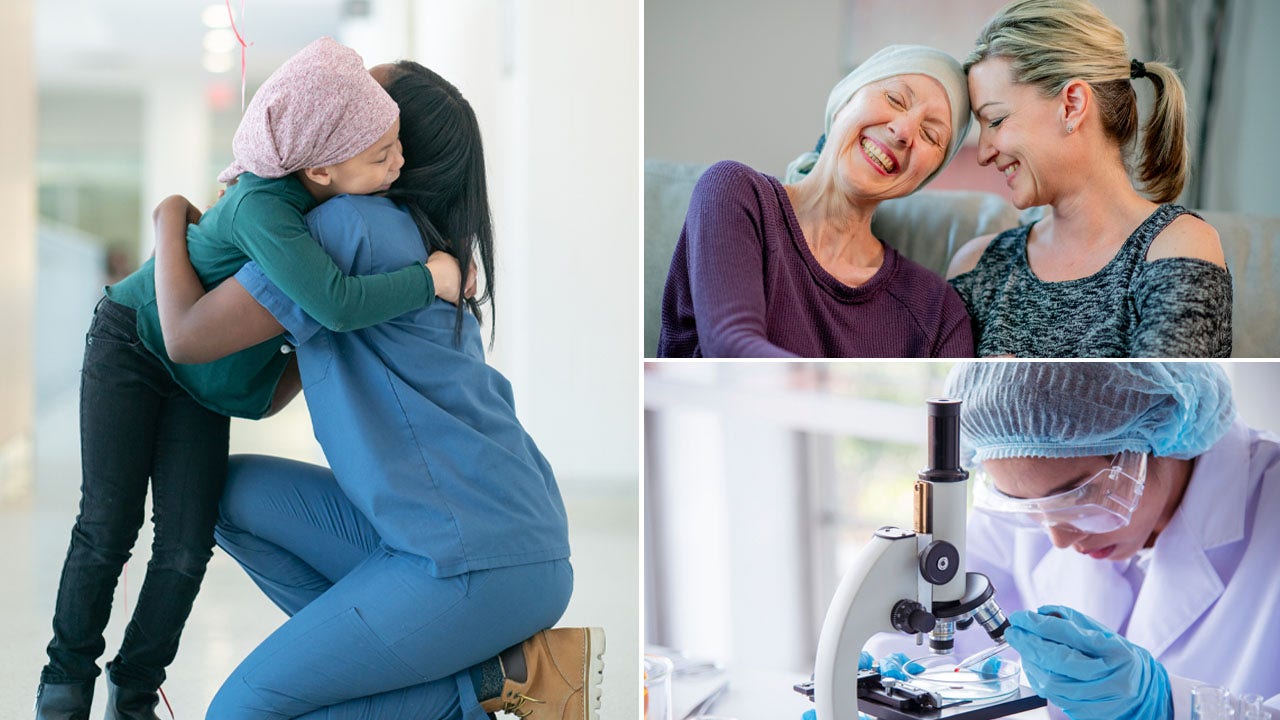
At the beginning of 2024, the American Cancer Society predicted that 2,001,140 new cancer cases and 611,720 cancer deaths would occur in the United States.
Now, as the year draws to a close, experts are looking back and reflecting on the discoveries and advances that have been made in the field of cancer treatment and prevention.
Fox News Digital spoke with four oncologists from the Sarah Cannon Research Institute in Nashville, Tennessee, about the most notable accomplishments of 2024 and what they see on the horizon for 2025.
5 CANCER TYPES WHERE SCREENINGS SAVE THE MOST LIVES
See the answers and questions below.
Krish Patel, MD, director of lymphoma research
Krish Patel, M.D., is director of lymphoma research at Sarah Cannon Research Institute in Nashville, Tennessee. (Sarah Cannon Research Institute )
Q: What do you see as the most important cancer advances in 2024?
A: In the field of lymphomas, we see growing momentum for therapies that use the patient’s own immune system to fight their cancer, such as CAR T-cell therapy and bispecific antibodies.
These are treatments that are now being studied and are making an impact earlier in the disease course, including one now being studied as the very first treatment a patient might receive for their lymphoma.
PANCREATIC CANCER PATIENT SURVIVAL DOUBLED WITH HIGH DOSE OF COMMON VITAMIN, STUDY FINDS
These treatments are helping us to be less dependent on chemotherapies (which may be effective but have broad side effects) for the treatment of lymphomas.
Q: What are your predictions for cancer research in 2025?
A: Every year we are improving the curative treatment options we have for specific types of lymphomas, such as diffuse large B-cell lymphoma (DLBCL), which is the most common lymphoma we see.
We are also gradually becoming better able to offer these treatments closer to – or in – patients’ homes and communities, so they can receive the best care as close to home as possible.
“Every year, we are improving the curative treatment options we have for specific types of lymphomas.”
I believe that in 2025, we will continue to see more advancement in immunotherapies, development of more targeted therapies (including oral medicines), and hopefully soon the approval of next generations of immunotherapies that may work for patients who have already received today’s immunotherapies but need more treatment options.
Q: How has the state of cancer in your specialty area changed and evolved over the past decade?
A: It has changed and evolved dramatically. A decade ago, care for lymphomas was primarily chemotherapy-based. Now, we are shifting rapidly away from chemotherapies in some types of lymphomas in favor of immunotherapies and targeted oral therapies that lead to excellent long-term outcomes for patients, with fewer side effects than historical treatments.
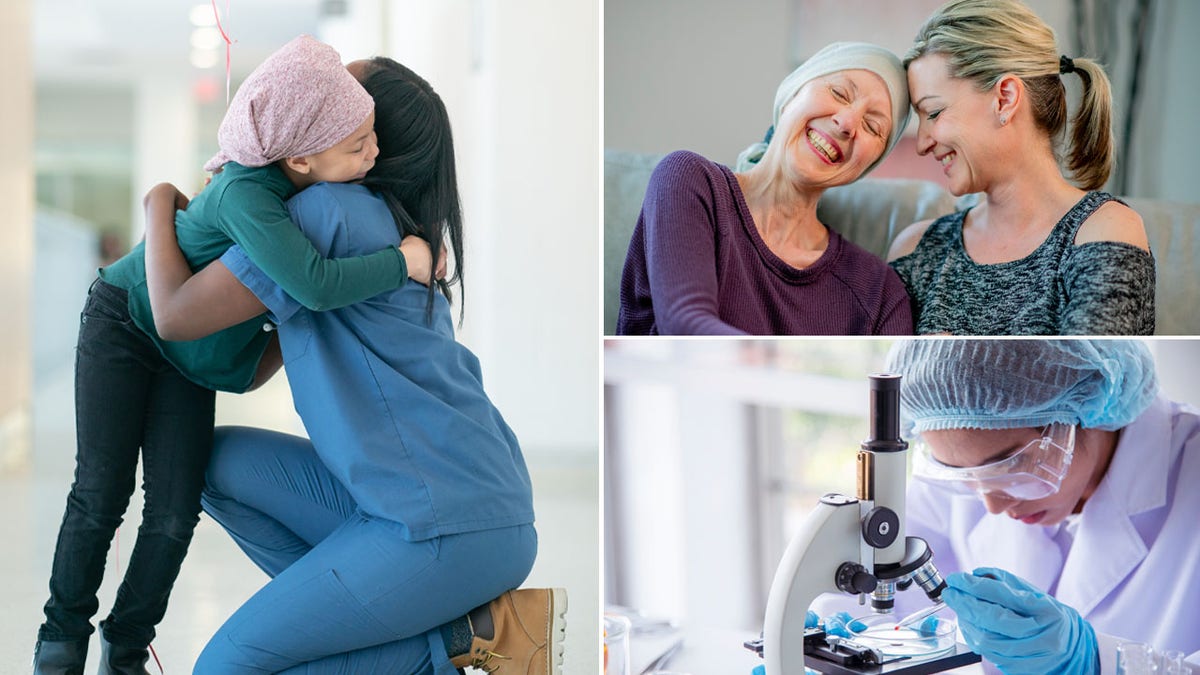
As 2024 comes to an end, experts are looking back and reflecting on the discoveries and advances that have been made in the field of cancer treatment and prevention. (iStock)
Q: What can people do to reduce their cancer risk?
A: We think of lymphomas as diseases of aging for most patients. Some patients may have select risk factors, such as being on specific immunosuppressants or having exposure to very specific industrial chemicals.
Those risks may or may not be so modifiable for patients, and they represent the minority of patients who develop lymphoma.
AI DETECTS WOMAN’S BREAST CANCER AFTER ROUTINE SCREENING MISSED IT: ‘DEEPLY GRATEFUL’
While it is not entirely clear what modifiable risks patients may have, there is ongoing work to help better answer that question. However, we know that the better general health someone is in, the more likely they are to have any and all treatment options available to them.
I would say that for most people, exercising regularly, eating well and sleeping regularly are important.
Q: Anything else people should know?
A: There is great hope and a lot of exciting science happening to help us drive toward more cures, more effective treatments and less toxic treatments for lymphomas.
We have already made major strides in the last decade, and we continue to build on that momentum through clinical trials that provide early access to cutting-edge therapies.

Exercising regularly, eating well and getting enough sleep are all recommended activities to help prevent cancer risk, experts agreed. (iStock)
For patients, participating in clinical trials may help to close that time gap between the treatments that are broadly available today and the treatments we expect to be available years from now.
They also provide a way for patients to contribute positively to the care patients in future generations may receive, which I have been told by many of my patients is something they really want to do and something that is important to them.
Erika Hamilton, MD, director of breast cancer research
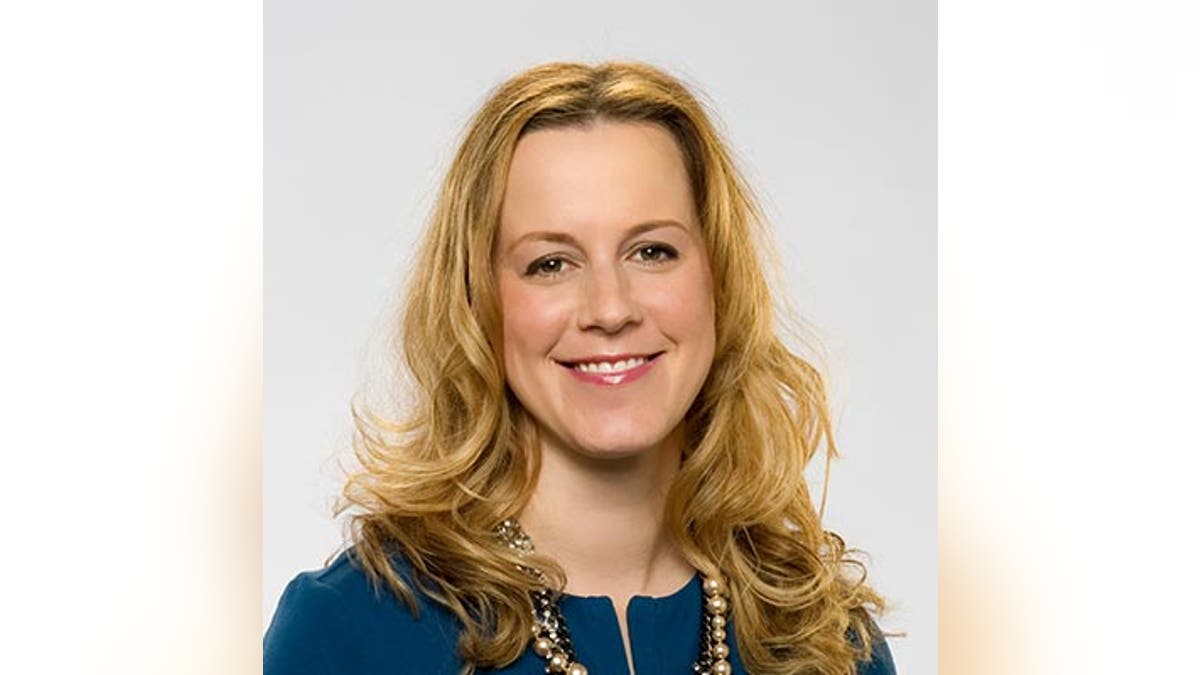
Erika Hamilton, M.D., is director of breast cancer research at Sarah Cannon Research Institute in Nashville, Tennessee. (Sarah Cannon Research Institute)
Q: What do you see as the most important cancer advances in 2024?
A: The two most exciting focuses of 2024 were 1) expansion of targeted therapies in the curative setting for hormonally driven breast cancer and 2) antibody drug conjugates.
First, three different CDK4/6 inhibitors have been approved in the metastatic setting, and they improve survival and outcomes.
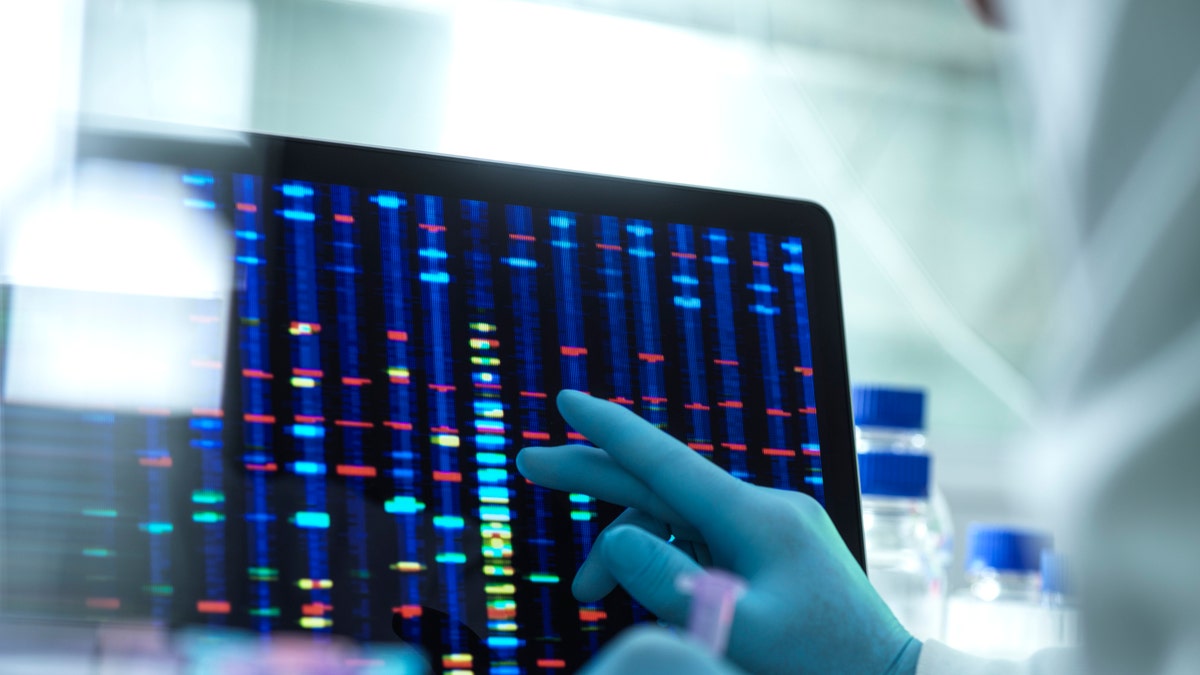
Treatments that are precisely tailored to the genetic makeup of a person’s cancer are becoming more widely available, experts say. (iStock)
In 2024, we saw the approval of a second one in the curative setting, enabling us to identify the highest-risk patients and offer them something additional to endocrine therapy to improve cure rates.
Second, we now have multiple antibody drug conjugates approved across all types of breast cancer. These therapies target a chemotherapy drug directly to the tumor via an antibody-honing mechanism and largely spare normal body cells.
“I anticipate drugs that are better tolerated with decreased side effects for patients, and a continued emphasis on personalized medicine.”
Q: What are your predictions for cancer advances in 2025?
A: I anticipate seeing more targeted agents in 2025 and the approval of antibody drug conjugates in curative early breast cancer — currently, most are only approved in metastatic cancer.
[I also anticipate] drugs that are better tolerated with decreased side effects for patients, and a continued emphasis on personalized medicine.
Q: How has the state of cancer in your specialty area changed and evolved over the past decade?
A: In 2024, truly personalized medicine is possible, from mutation testing to direct targeted therapy to what a cancer needs to grow — as well as being able to provide many HR+ breast cancer patients with curative chemotherapy through personalized risk stratification assays.
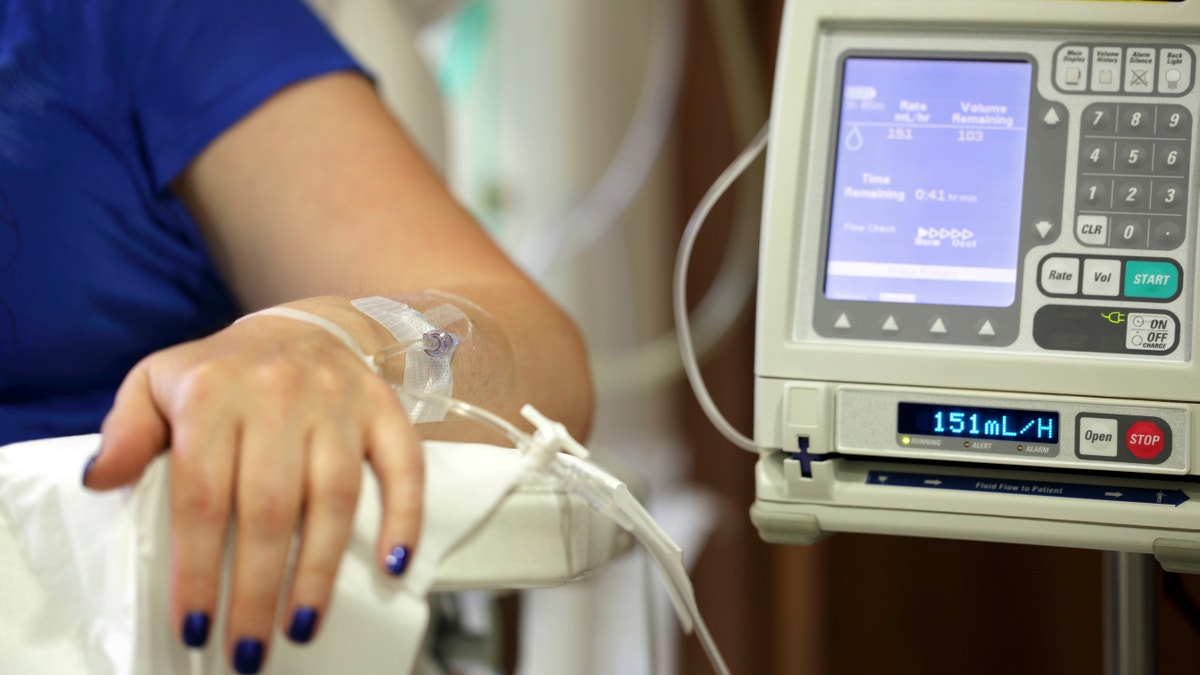
“I anticipate seeing more targeted agents in 2025 and the approval of antibody drug conjugates in curative early breast cancer,” said Hamilton (not pictured). (iStock)
Q: What can people do to reduce their cancer risk?
A: Continued breast screening with mammograms yearly is really important to find cancers earlier when a cure is more likely.
People can also reduce their risk through avoiding alcohol and cigarettes and making sure they get regular exercise and maintain a normal body weight.
Vivek Subbiah, MD, chief of early-phase drug development

Vivek Subbiah, M.D., is chief of early-phase drug development at Sarah Cannon Research Institute in Nashville, Tennessee. (Sarah Cannon Research Institute )
Q: What do you see as the most important cancer advances in 2024?
A: In 2024, precision cancer treatment made big strides with many new drug approvals by the FDA, specifically for treatments guided by specific biomarkers, which means treatments can be more precisely tailored to the genetic makeup of a person’s cancer.
BREAST CANCER VACCINE UPDATE FROM CLEVELAND CLINIC: ‘A NEW ERA’
A key change was moving some therapies from faster, temporary approval processes to full approval, showing strong evidence that these targeted therapy drugs, such as tepotinib and amivantamab for certain types of lung cancer, are effective and safe.
There were also new drug approvals for rare cancers, including tovorafenib, a BRAF precision medicine for a rare type of brain tumor in children, and afamitresgene autoleucel, a type of immunotherapy for a rare cancer called synovial sarcoma. This highlights important progress in treating these challenging conditions.
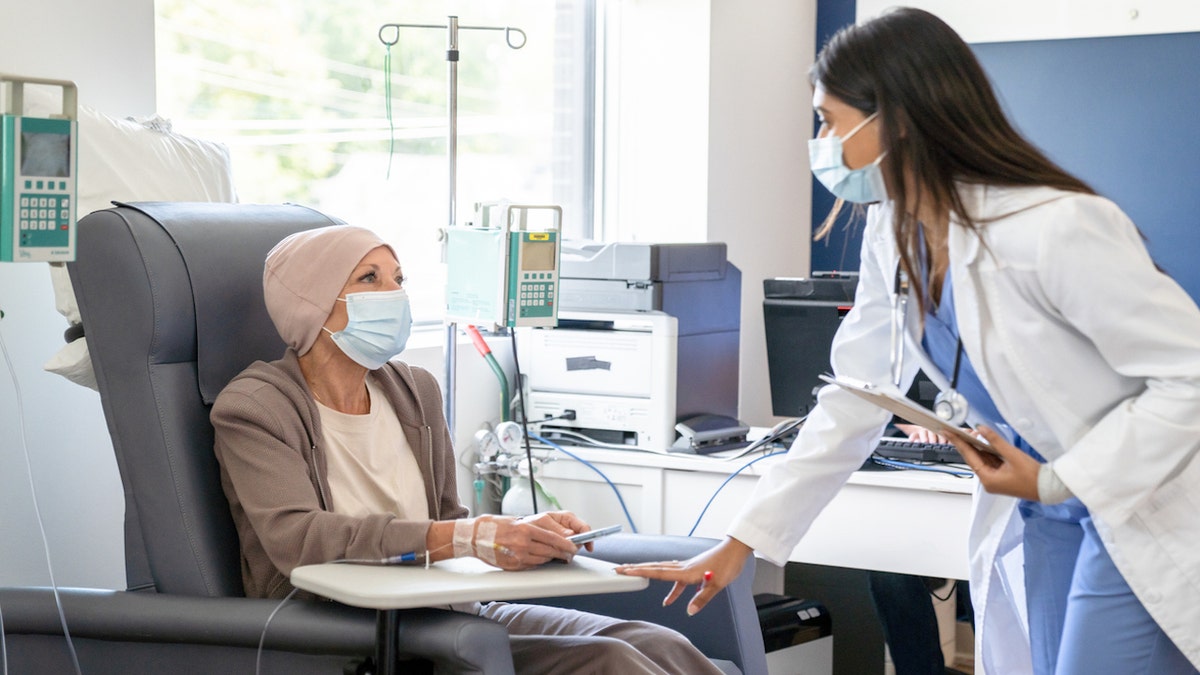
“In 2024, precision cancer treatment made big strides with many new drug approvals by the FDA, specifically for treatments guided by specific biomarkers,” Subbiah (not pictured) told Fox News Digital. (iStock)
We have also seen the approval of precision therapies that work on different types of cancer — not just one specific cancer. This is what we call “tissue-agnostic therapies.”
One such drug is an antibody drug conjugate called trastuzumab deruxtecan, which acts like a smart missile targeting HER2-positive cancers. Another is repotrectinib, which works on any cancer that has the NTRK biomarker, regardless of where it is in the body.
Q: What are your predictions for cancer advances in 2025?
A: By 2025, cancer research is likely to see advancements in precision oncology and the use of artificial intelligence.
In precision oncology, we can expect more personalized treatment plans based on an individual’s genetic makeup, leading to more effective and targeted therapies with fewer side effects.
Additionally, AI will likely play a larger role in analyzing vast amounts of data to identify new drug targets, predict patient responses to treatments and enhance early detection methods.
These advancements have the potential to improve cancer diagnosis, treatment and overall patient outcomes.
Q: How has the state of cancer in your specialty area changed and evolved over the past decade?
A: In the last 10 years, cancer treatment has changed dramatically. By using genetic information to create personalized treatments that match the specific details of each person’s cancer, therapies are more effective and less harmful.
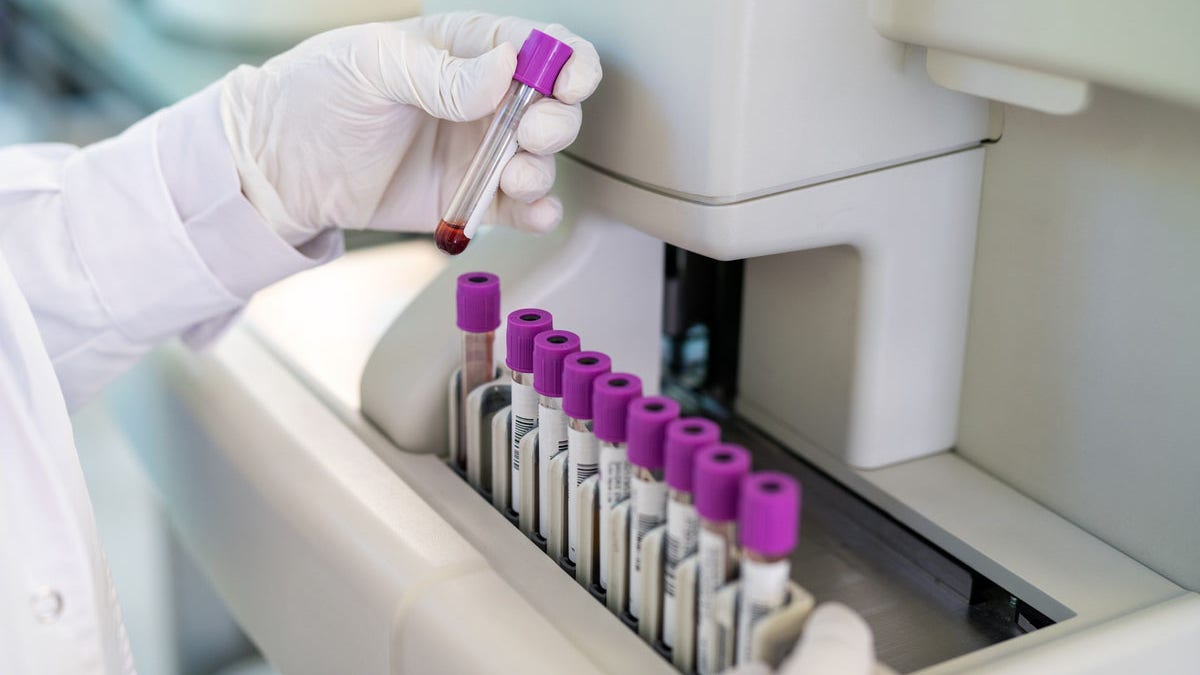
“In precision oncology, we can expect more personalized treatment plans based on an individual’s genetic makeup,” Subbiah said. (iStock)
New technologies such as analyzing cancer’s genetic profile, blood tests that detect cancer, and treatments that boost the immune system have greatly improved how we diagnose, track and treat cancer, leading to better results for patients.
Q: What can people do to reduce their cancer risk?
A: To lower the risk of cancer, people can avoid smoking, eat a healthy diet, exercise regularly, limit alcohol, protect their skin from the sun and maintain a healthy weight.
Q: Anything else people should know?
A: Get vaccines for viruses like HPV and hepatitis B, as they can lead to some cancers. Also, go for regular health checks to catch any signs of cancer early.
CLICK HERE TO SIGN UP FOR OUR HEALTH NEWSLETTER
We are in a unique time when treatments can be tailored specifically to each person, and many of these are available through clinical trials. If you or a loved one is diagnosed with cancer, ask your doctor if there are any clinical trials that might be a good fit.
Meredith McKean, MD, MPH, director of melanoma and skin cancer research
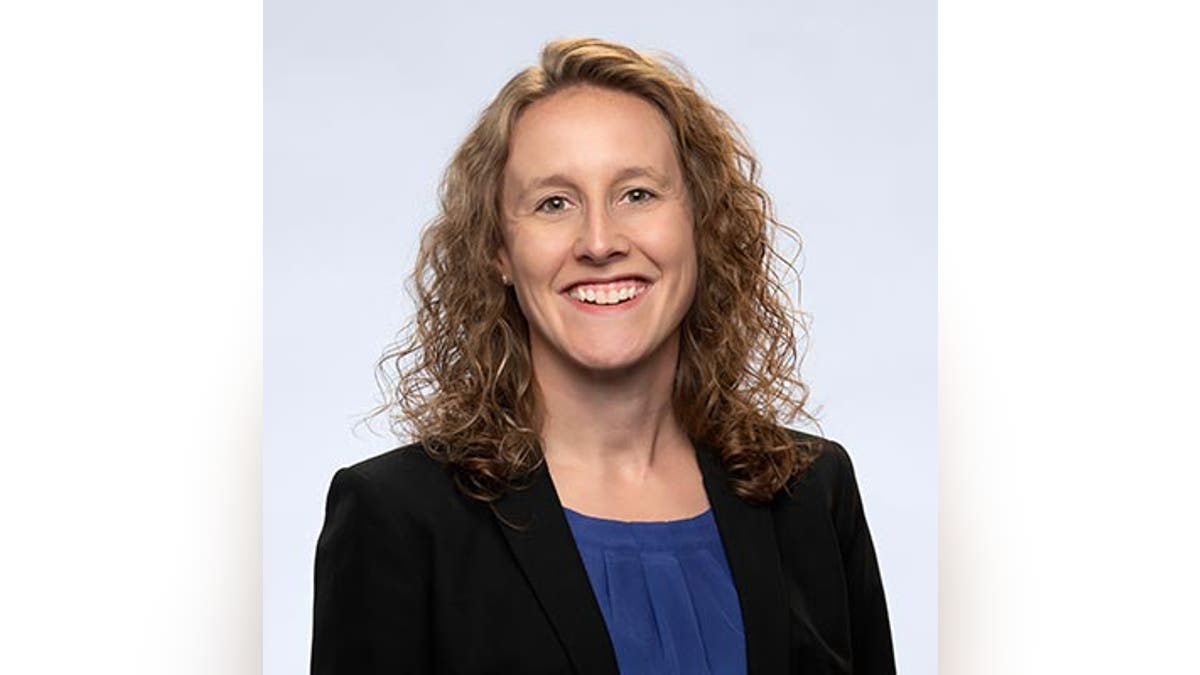
Meredith McKean, M.D., MPH, is the director of melanoma and skin cancer research at Sarah Cannon Research Institute in Nashville, Tennessee. (Sarah Cannon Research Institute)
Q: What do you see as the most important cancer advances in 2024?
A: The first cellular therapy, Lifileucel, was approved in melanoma after decades of research in academia and industry.
“We are in a unique time when treatments can be tailored specifically to each person, and many of these are available through clinical trials.”
This is a significant step forward for both patients with melanoma, but also the field of oncology at large.
Q: What are your predictions for cancer advances in 2025?
A: As we look to bring effective therapies from the metastatic setting into early stages of disease, we are anxiously awaiting updates in the next 18 to 24 months for a number of ongoing trials for combination therapy for patients with high-risk stage 2 or 3 melanoma.
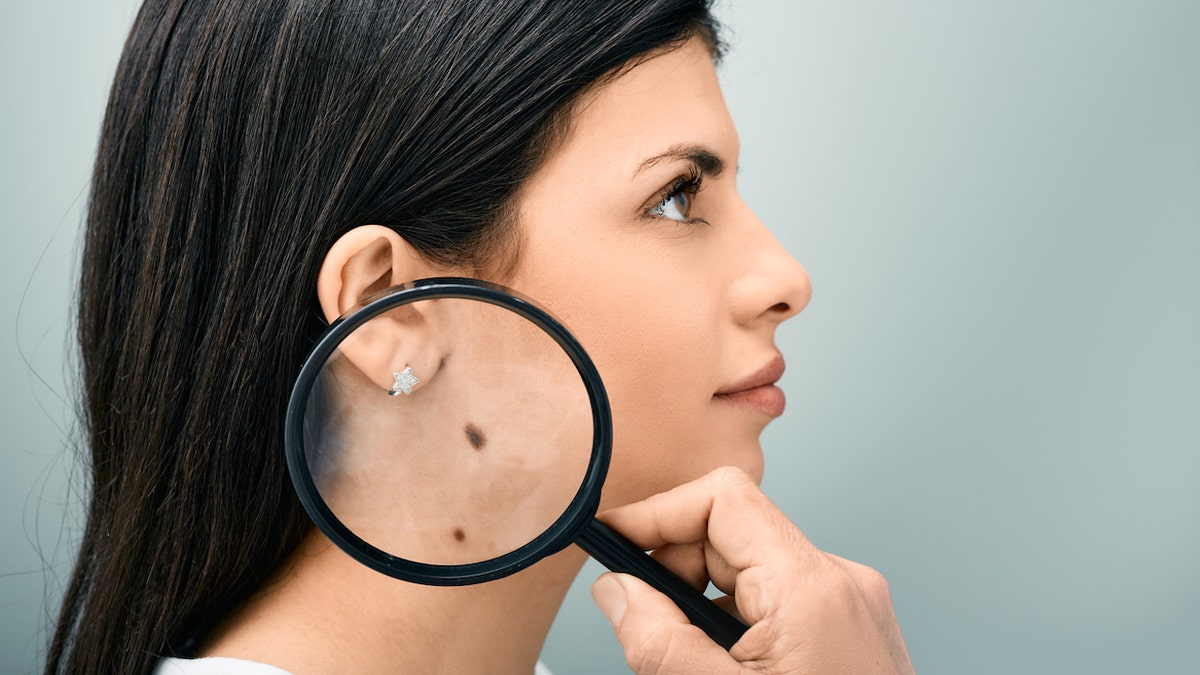
In 2024, the first cellular therapy, Lifileucel, was approved in melanoma after decades of research, according to Meredith McKean, M.D., of the Sarah Cannon Research Institute (not pictured). (iStock)
Q: How has the state of cancer in your specialty area changed and evolved over the past decade?
A: Outcomes for melanoma have significantly changed over the past 10 years.
For more Health articles, visit www.foxnews.com/health
The five-year survival for patients with a diagnosis of stage 4 melanoma was less than 5% before 2010, and now clinical trials have shown that more than 50% of patients are still alive 10 years after being treated with FDA-approved immune checkpoint inhibitors.
Q: What can people do to reduce their cancer risk?
A: Lifelong sun protective measures, such as wearing sunscreen, avoiding direct UV exposure during peak hours of 10 a.m. to 2 p.m., and avoiding tanning beds continue to be important starting at an early age.
Health
First severe case of bird flu detected in US, CDC confirms

- A patient was hospitalized with a severe case of bird flu in Louisiana, the CDC said.
- This case is the first confirmed instance of a severe human infection linked to the H5N1 virus.
- The CDC said its assessment of risk to the public remains low.
The U.S. Centers for Disease Control and Prevention said on Wednesday that a patient has been hospitalized with a severe case of H5N1 infection in Louisiana, marking the first known instance of a severe human illness linked to the bird flu virus in the United States.
The case was confirmed by the agency on Friday, it said.
BIRD FLU CAUSES DEATHS OF CATS AND ZOO ANIMALS AS VIRUS SPREADS IN US
The CDC said that a sporadic case of severe H5N1 bird flu illness in a person is not unexpected as has previously been experienced in other countries during 2024 and prior years, including in cases that led to death. The agency said its assessment of risk to the public remains low.
The CDC said on Wednesday a patient has been hospitalized with a severe case of H5N1 infection in Louisiana. (Reuters/Dado Ruvic/Illustration/File Photo)
The CDC said that partial viral genome data from the infected patient shows that the virus belongs to the D1.1 genotype, recently detected in wild birds and poultry in the United States and in recent human cases in British Columbia, Canada, and Washington state.
CLICK HERE TO SIGN UP FOR OUR HEALTH NEWSLETTER
This genotype of the virus is different from the B3.13 genotype detected in dairy cows, human cases than multiple states, and some poultry outbreaks in the country, CDC said.
There have been a total of 61 human cases of H5 bird flu reported in the United States since April, according to the CDC.
Health
Traveling for Christmas? Stay healthy with these 7 tips

Travel is a big part of the holiday season, with statistics showing that more than 119 million Americans plan to embark on some type of journey between Christmas and New Year’s.
Unfortunately, traveling also increases the risk of getting sick — but there are steps you can take to increase your chances of staying healthy while away from home.
“When you’re traveling, when you’re on the road, there’s a lot of risk of stress and disorientation,” Dr. Marc Siegel, clinical professor of medicine at NYU Langone Health and Fox News senior medical analyst, told Fox News Digital.
NEW TRAVEL TREND HAS AMERICANS CHASING FOUNTAIN OF YOUTH
“You’re not in your usual habitat, and that can make people disoriented, upset, anxious or even sleep-deprived, especially when changing time zones.”
Siegel shared some of his top tips for preventing illness during holiday travel.
Traveling increases the risk of getting sick — but there are steps you can take to increase your chances of staying healthy while away from home. (iStock)
1. Stay well-hydrated
Staying hydrated has been shown to boost the immune system and protect against illness.
Water is always best, but other hydrating fluids include plain coffee or tea, sparkling or flavored waters, 100% vegetable juice, and milk or milk alternatives.
2. Keep up with your exercise routine
It’s best to travel while “well-exercised,” Siegel said.
“If you have a regular exercise routine, I wouldn’t suspend it a week before travel,” he said.
‘HOLIDAY SHOPPING WIPES ME OUT, HOW CAN I KEEP UP MY STAMINA?’: ASK A DOCTOR
“If you’re regularly exercising, sleeping right and eating right before you go, I think that that puts you in much better shape when you’re traveling.”
3. Wipe down surfaces
Siegel said he’s a “big believer” in wiping down surfaces, especially when traveling by plane.
“You wouldn’t believe what these surfaces carry — we’ve studied that,” he said. “There are a lot of germs in that tray table, and it’s the person next to you who could be sick.”
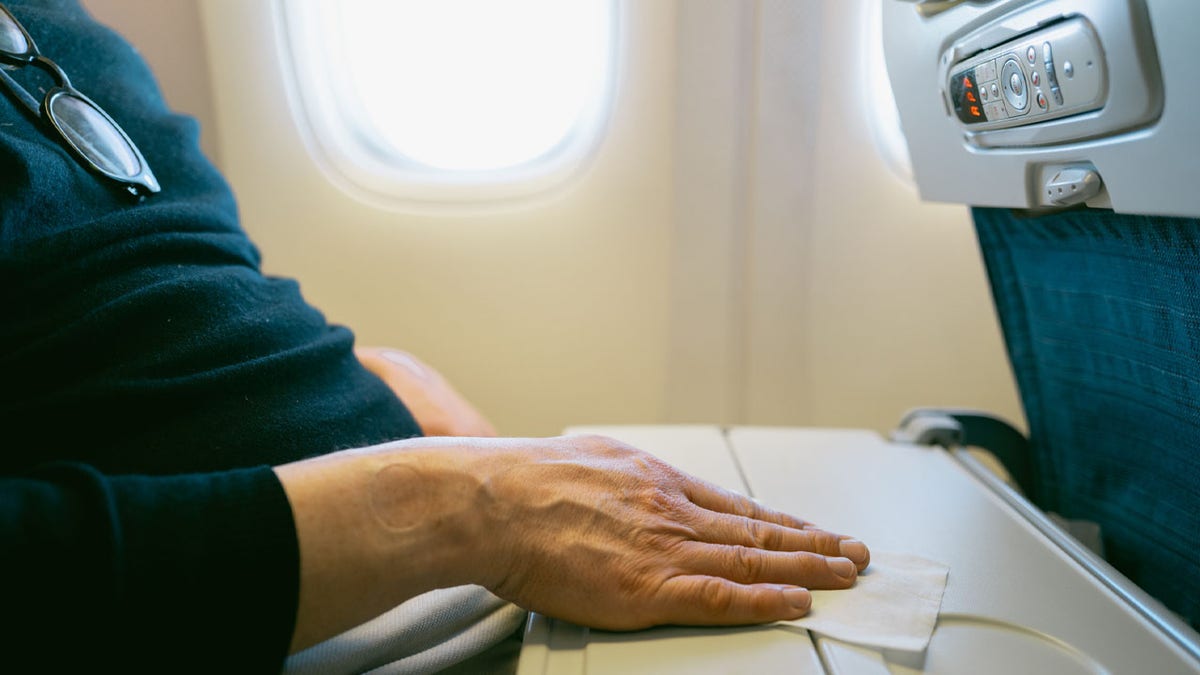
“You wouldn’t believe what these surfaces carry — we’ve studied that,” Siegel said. “There are a lot of germs in that tray table, and it’s the person next to you who could be sick.” (iStock)
The HEPA filters on planes are “quite good,” Siegel said, but most of the time they don’t start working until you’re up in the air, he noted.
“So you want to be most cautious when you’re on the runway or just getting onto the plane,” he added.
4. Stay up-to-date on vaccines
“When you’re about to take a trip, it is a good time for you to think about whether you’re up-to-date on your vaccines,” Siegel said.
One immunization that isn’t given enough attention, according to the doctor, is Tdap, a combination vaccine that protects against tetanus, diphtheria and pertussis (whooping cough).
It is given at least once every five to 10 years.
COVID VACCINE DISTRUST GROWING AMONG AMERICANS
“There’s a ton of whooping cough around this year,” Siegel said. “Thousands of cases are reported, but many thousands aren’t.”
The doctor also recommends the shingles shot for those over the age of 50 and the pneumonia vaccine for people 60 and older.
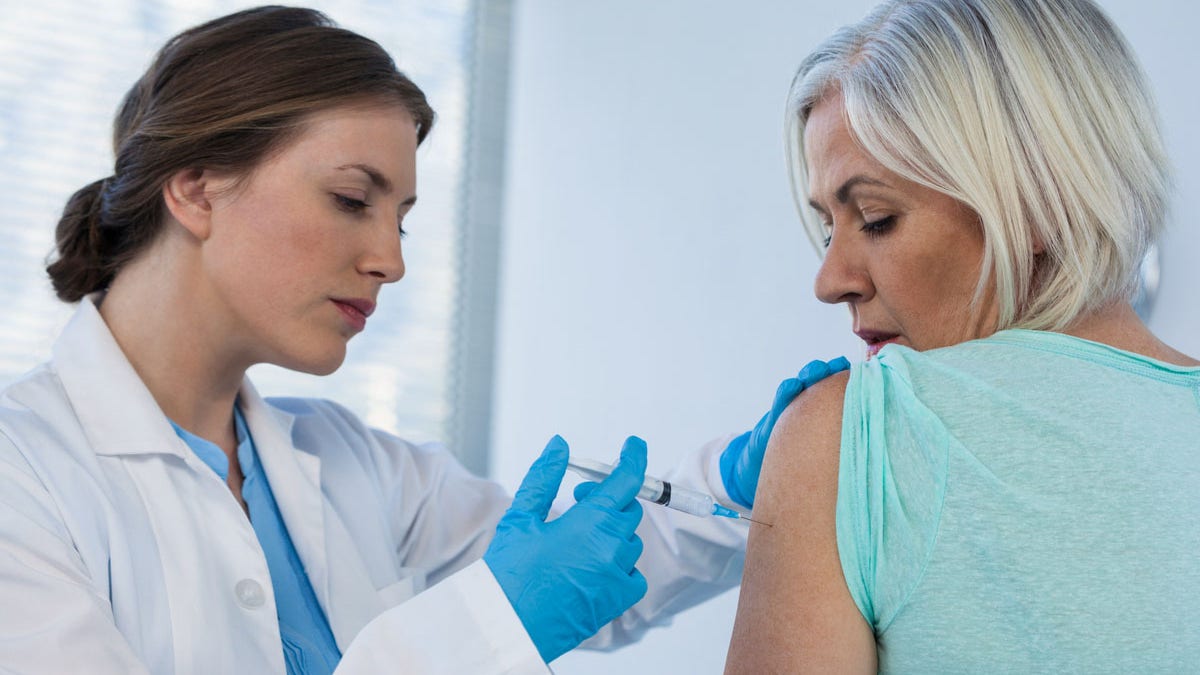
“When you’re about to take a trip, it is a good time for you to think about whether you’re up-to-date on your vaccines,” Siegel said. (iStock)
“When you’re under stress from travel, that might be when you could get sick,” Siegel said, as the immune system isn’t functioning at an optimal level.
“When you’re under stress from travel, that might be when you could get sick.”
“That’s when shingles might reappear,” he warned. “Shingles is actually a chickenpox virus that’s dormant in your body for years, but can recur at times of stress.”
The Centers for Disease Control and Prevention (CDC) also recommends that everyone 6 months and older receives COVID and flu vaccinations, with rare exceptions.
5. Pack a travel health kit
For those who take multiple daily medications, the doctor recommends traveling with one pill bottle and putting the various pills in it, making it less likely for any to get misplaced.
“Make sure you have more than enough,” he advised. “You never know when you’re going to get delayed, especially around holiday travel.”

Siegel recommends bringing three or four extra days of pills for all medications. (iStock)
Siegel recommends bringing three or four extra days of pills for all medications.
“Depending on what chronic illnesses you may have, it’s a good idea to be up-to-date with blood draws and visits to your doctor” before traveling, he added.
6. Get sufficient, quality sleep
It can be challenging to maintain a regular sleep cycle while traveling, Siegel noted, especially when time zones are changing.
“The more you can catch some winks while traveling, the better off you’re going to be,” he said.
SLEEP AND TRAVEL DON’T ALWAYS MIX: HERE ARE 7 TIPS TO HELP YOU REST ON THE ROAD
For those who have trouble falling asleep while on the road, Siegel recommends identifying what makes you drift off at home and using those same techniques.
“I get asked a lot for sleeping aids,” he said. “For people who are traveling on long trips, I personally am uncomfortable giving medication if the patient hasn’t been taking it already.”
7. Use masks as needed
While masks “got a bad name” during the pandemic because of mandates, Siegel noted that they are tools that can be used for those who are ill or at a higher risk.
CLICK HERE TO SIGN UP FOR OUR HEALTH NEWSLETTER
“If you’re a person who’s at risk of an infectious disease or has a chronic illness, the last thing you need is to get the flu, COVID or RSV.”
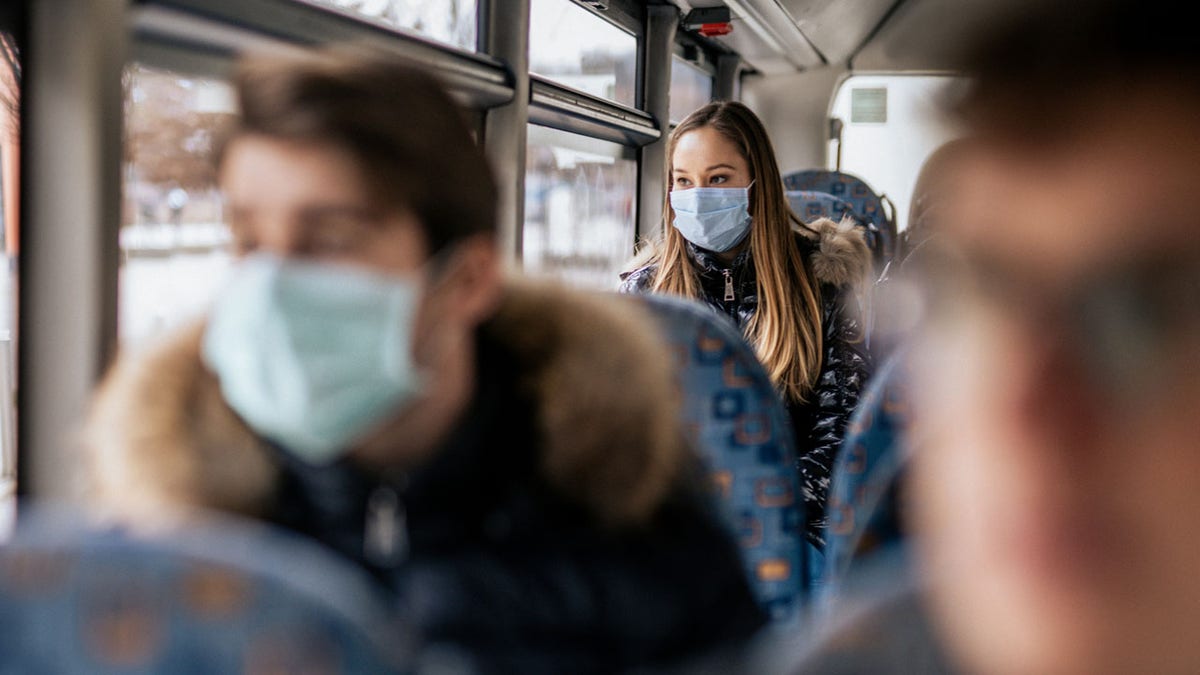
While masks “got a bad name” during the pandemic because of mandates, Siegel noted that they are tools that can be used for those who are ill or at a higher risk. (iStock)
The doctor recommends considering a mask for tight spaces where there are a lot of people around.
“You don’t know what they have or what they are harboring,” he said.
For more Health articles, visit www.foxnews.com/health
“That’s why I would consider one, especially if you’re at high risk, if you’re on a plane that’s sitting on the runway and the air isn’t circulating and the HEPA filters aren’t yet engaged.”
Overall, Siegel said, “staying hydrated, eating right and sleeping properly as best as possible is the way to go in decreasing stress while traveling.”
-
/cdn.vox-cdn.com/uploads/chorus_asset/file/25789444/1258459915.jpg)
/cdn.vox-cdn.com/uploads/chorus_asset/file/25789444/1258459915.jpg) Technology1 week ago
Technology1 week agoOpenAI cofounder Ilya Sutskever says the way AI is built is about to change
-

 Politics1 week ago
Politics1 week agoU.S. Supreme Court will decide if oil industry may sue to block California's zero-emissions goal
-

 Business1 week ago
Business1 week agoFreddie Freeman's World Series walk-off grand slam baseball sells at auction for $1.56 million
-
/cdn.vox-cdn.com/uploads/chorus_asset/file/23951353/STK043_VRG_Illo_N_Barclay_3_Meta.jpg)
/cdn.vox-cdn.com/uploads/chorus_asset/file/23951353/STK043_VRG_Illo_N_Barclay_3_Meta.jpg) Technology1 week ago
Technology1 week agoMeta’s Instagram boss: who posted something matters more in the AI age
-
News1 week ago
East’s wintry mix could make travel dicey. And yes, that was a tornado in Calif.
-
/cdn.vox-cdn.com/uploads/chorus_asset/file/24924653/236780_Google_AntiTrust_Trial_Custom_Art_CVirginia__0003_1.png)
/cdn.vox-cdn.com/uploads/chorus_asset/file/24924653/236780_Google_AntiTrust_Trial_Custom_Art_CVirginia__0003_1.png) Technology3 days ago
Technology3 days agoGoogle’s counteroffer to the government trying to break it up is unbundling Android apps
-

 Politics4 days ago
Politics4 days agoIllegal immigrant sexually abused child in the U.S. after being removed from the country five times
-

 News4 days ago
News4 days agoNovo Nordisk shares tumble as weight-loss drug trial data disappoints
